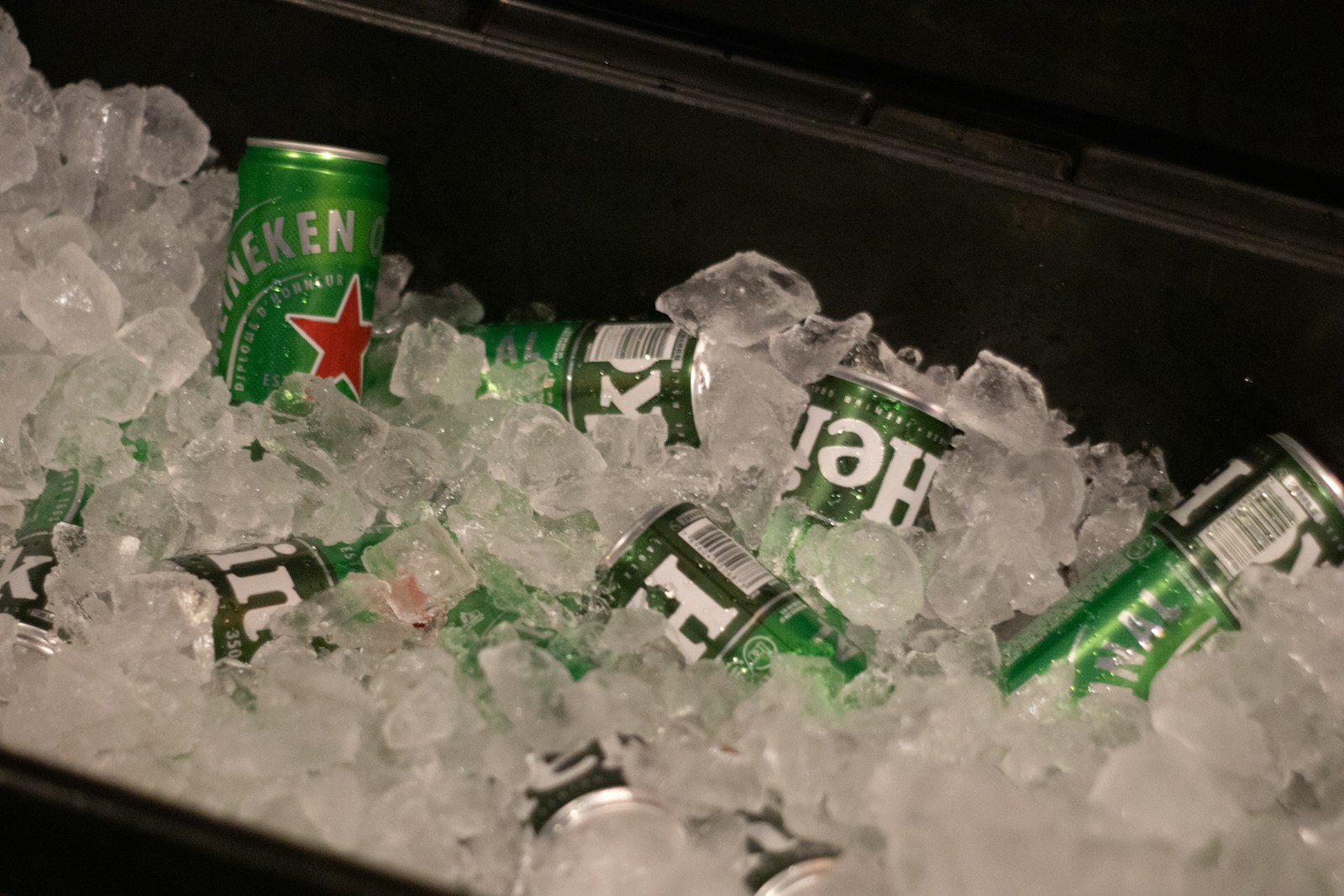
啤酒
píjiǔ

beer
In Chinese, '啤酒' refers to beer, an alcoholic beverage commonly made from water, barley, hops, and yeast. It is consumed in a wide range of social settings and is a staple in many cultural celebrations and traditions. It can be found in various restaurants, bars, and pubs in China, and it is traditionally consumed chilled.
Example sentences using: 啤酒
他去超市买啤酒。
Tā qù chāoshì mǎi píjiǔ.

He goes to the supermarket to buy beer.
This is a simple sentence stating a person's action of purchasing beer at a supermarket.
这家餐厅的啤酒非常好。
Zhè jiā cāntīng de píjiǔ fēicháng hǎo.

The beer in this restaurant is very good.
This sentence gives an opinion about the quality of beer in a specific restaurant.
我不喜欢喝啤酒。
Wǒ bù xǐhuān hē píjiǔ.

I do not like to drink beer.
This sentence expresses personal dislike towards drinking beer.
啤酒对身体不好。
Píjiǔ duì shēntǐ bù hǎo.

Beer is not good for the body.
This sentence states that beer is unhealthy.
你能给我一瓶啤酒吗?
Nǐ néng gěi wǒ yī píng píjiǔ ma?

Can you give me a bottle of beer?
In this sentence, the speaker is asking someone else for a bottle of beer.
父亲节他收到许多啤酒作为礼物。
Fùqīn jié tā shōudào xǔduō píjiǔ zuòwéi lǐwù.

He received many beers as gifts on Father's Day.
It is indicating that the person received a lot of beer as a gift on Father's Day.
我想尝尝这款新啤酒。
Wǒ xiǎng chángcháng zhè kuǎn xīn píjiǔ.

I want to try this new beer.
In this sentence, the speaker expresses a desire to try a new type of beer.
啤酒是在德国非常受欢迎的饮料。
Píjiǔ shì zài déguó fēicháng shòu huānyíng de yǐnliào.

Beer is a very popular drink in Germany.
This sentence describes beer as being a popular drink in Germany.
他妈妈禁止他饮用啤酒。
Tā māmā jìnzhǐ tā yǐnyòng píjiǔ.

His mother forbids him to drink beer.
This statement tells us that his mother is restricting him from consuming beer.
常喝啤酒会增加肥胖的风险。
Cháng hē píjiǔ huì zēngjiā féipàng de fēngxiǎn.

Drinking beer regularly can increase the risk of obesity.
This sentence talks about the possible health risk of regular beer intake.